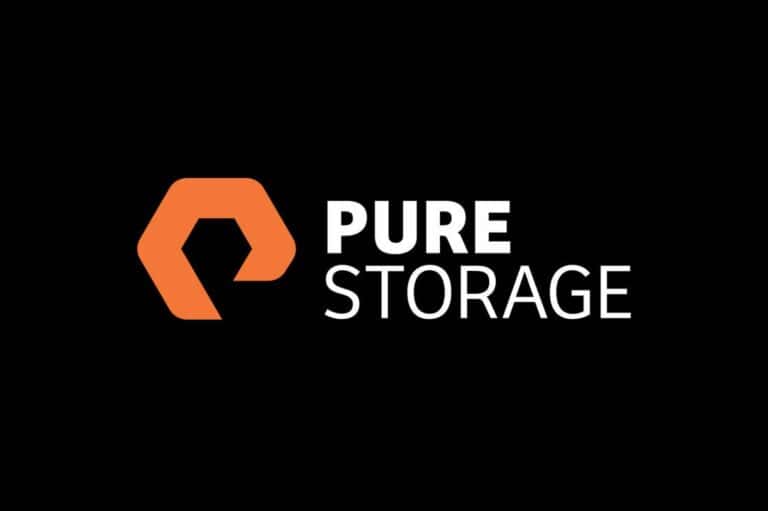Pure Storage is doing well. The specialist in large-scale flash storage solutions achieved a 9 percent increase in revenue last period, reaching 831 million dollars (nearly 793 million euros). That is slightly more than analysts had predicted, thanks mainly to increased product sales and subscription services. Even more striking is that the company managed to get a large hyperscaler to sign up for its flash storage arrays.
Although quarterly profit showed a small dip (63.64 million dollars, down 9.6 percent from the same period last year), annual recurring revenue (ARR) from subscriptions showed particular growth: 22 percent to a total of 1.6 billion dollars. Meaning this business model seems to be paying off.
Perhaps even more interesting than these numbers is the fact that Pure Storage has struck a deal with a major hyperscaler to provide flash storage for its data centers. It concerns a company part of the ‘top four’ hyperscalers, according to Pure Storage, which did not mention this client by name. Still, it’s either AWS, Azure, Google or Meta.
Ready to eat into the HDD pie
This is important news because Pure only offers flash-only storage solutions, including the Purity OS and DirectFlash Modules (DFM). Data centers—including hyperscalers—still primarily use HDDs, accounting for up to 70 percent of the global storage market. Through this deal, Pure is going to replace at least some of that storage with its own Flash solutions. CEO Charlie Giancarlo said the 75 TB DFM models apparently caught the attention of the newly acquired customer in particular.
The CEO underlined that it was the first time a flash memory vendor had won such an order. Giancarlo said he expected this deal to lead to broader adoption of flash memory in hyperscalers’ environments. He said this lowers maintenance costs and extends the life of storage infrastructure.
The deal does not involve direct hardware delivery, but licensing the technology and providing technical support. “We’re effectively licensing […] the two parts of the technology; that is the software as well as the hardware design,” Giancarlo said in a call with investors about the quarterly results.
Flash forward
Earlier we wrote that flash-based storage is steadily replacing the old trusty hard disk or HDD. This was already true for desktops and laptops, but SSDs are also outperforming HDDs in data center environments, although it took a lot longer for SSDs to become relatively common there, mainly due to capacity limitations and the higher price. Flash is becoming increasingly interesting to enterprises, and the chances of HDDs regaining any of that lost ground are almost nil.
Tip: HDD market faces tough challenges: will hyperscalers also switch to flash?
Apart from the important partnership with the unnamed hyperscaler, Pure also banged on the drum about its previously announced partnership with AI-focused hyperscaler CoreWeave. AI compute and fast storage go hand in hand, and GPUs need continuous access to memory (and especially bandwidth) to optimally run AI workloads. So the combination of Nvidia hardware within CoreWeave infrastructure and a party like Pure Storage is a logical step.
Pure is also continuing its relationship with AWS and integrating its storage solutions with AWS’ Outposts offering. In other words: Pure is firmly intent on further strengthening its position in the hyperscaler market.
Full of confidence
Accordingly, the company looks confidently to the future. Next quarter revenue is expected to rise again, to 867 million dollars. For the entire fiscal year, Pure expects to achieve sales of 3.15 billion dollars (over 3 billion euros), a growth of 11.5 percent over the previous year. The company boasts a customer base of which 62 percent has a spot on the Fortune 500 list. The company isn’t too shy to mention that fact.
Pure Storage further expects the dollars to start pouring in during its fiscal year 2027 thanks to the hyperscaler deal it just closed. That budgetary year partially overlaps with the ‘regular’ year of 2025, during which the company will run tests with this new customer before actually delivering the many exabytes of storage in 2026.
Also read: Pure Storage promises ‘one-click’ AI deployment with GenAI Pod
